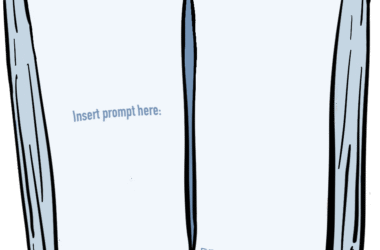The wrongfully accused in British Columbia have a new ally. Earlier this month, the University of British Columbia Faculty of Law’s Innocence Project, which works to overturn misappropriation of justice, announced a new partnership with the UBC School of Journalism.
The model is based on similar successful collaborations in the United States. Professor Peter Klein of the UBC School of Journalism hopes that merging the two faculties’ skills will prove helpful towards overturning the wrongfully accused.
“Law students get into the nitty gritty of a particular case,” he said. “The journalism students don’t have the legal background to understand everything about those details.”
Instead, journalism students can add a broader perspective that law students may miss.
“They can see the forest,” Klein said. “They can see if there’s a pattern of cases in the province, or an area of the country, or a certain municipality, where certain things are happening, or people are being targeted for racial or ethnic reasons, or there is a suspicious pattern of documents going missing. We also train our students to get documents, to interview, to be dogged.”
If the experience of similar projects at colleges like Northwestern University is any indication of the program’s effectiveness, the Innocence Project might help overturn some wrongful convictions in British Columbia. McGill has its own version of the program, Innocence McGill, which is student-run and supervised by faculty members and criminal lawyers. Klein sees these projects as part of a movement toward closer collaboration between journalists and academics.
At UBC, he said, “We want to do a lot more knowledge transfer between some of the academic work that’s done and help that information get disseminated. Some of the academics on campus are doing what I would call journalism … you can look at someone like [Liberal leader] Michael Ignatieff, who was at Harvard but also working for The New York Times Magazine.”
Thomas Jundt, a McGill history professor, sees the same blurred lines, and has observed how journalists cross into academic territory. This may be in part because their prose tends to be more accessible than that of academic historians, but Jundt suggests that it may also be because journalists take bolder stances on the issues at hand.
“Professional history is critical, which does not easily lend itself to the type of celebratory narratives that seem to sell so well,” Jundt wrote in an email to the Tribune. “Tom Brokaw can write about ‘the greatest generation,’ and sell more books than most academic historians could ever dream of. But training in history leaves most of us with the sense that every generation faces its own unique challenges and deals with them as best it can. Histor[ies are], among other things, stories we tell ourselves about who we are, and given the choice many of us seem to avoid the harshness of mirrors in favour of more flattering portraits.”
At the same time, Jundt sees some positive changes occuring in the academy. In trying to reach a broader audience, he thinks that, academics are abandoning “overly formal, impenetrable, and jargon-laden prose” in favour of a more accessible style.
Despite some movements towards each other, though, Jundt does not see a trend towards convergence. History will continue, he thinks, to “complicate our understanding of the past, while the public seems to prefer stories that flatten those complexities.” The rest of academia may be similar. Even if many academics write for each other, having a gulf between popular writing and specialized prose is likely necessary to ensure a strong critical focus.
When it comes to the law, Klein, at least, is optimistic about collaboration.
“As a learning experience, it’s been very helpful,” he said. “It’s too early to say if we’re going to get anyone out of jail, but we’re getting there. We’re doing some good work.”






